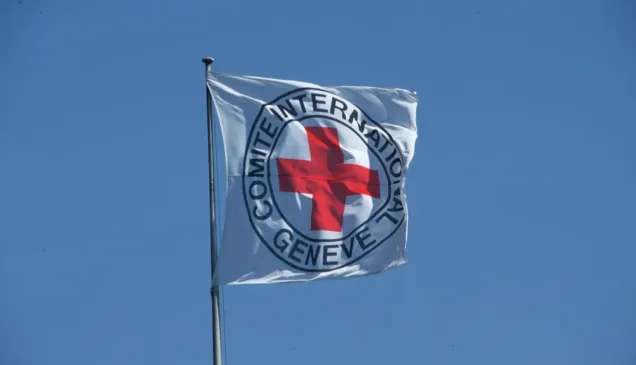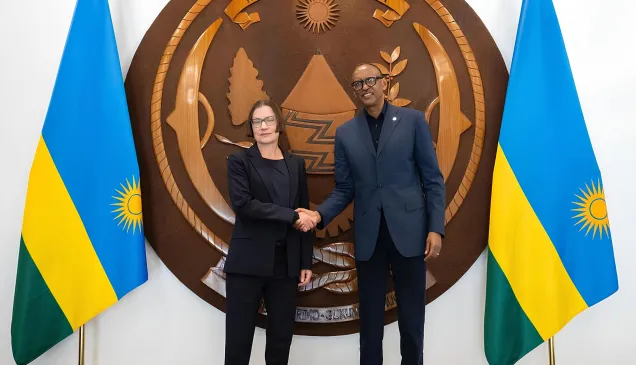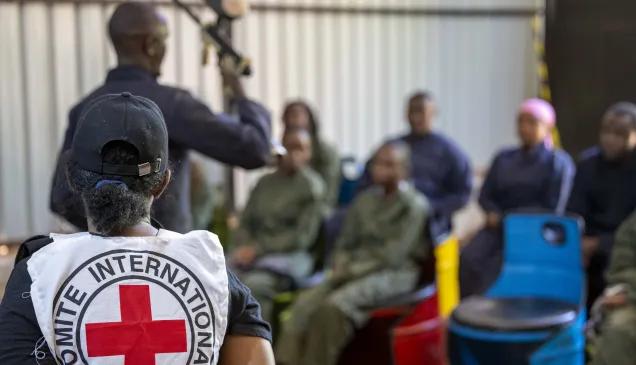Rwandan medical professionals complete management of dead training
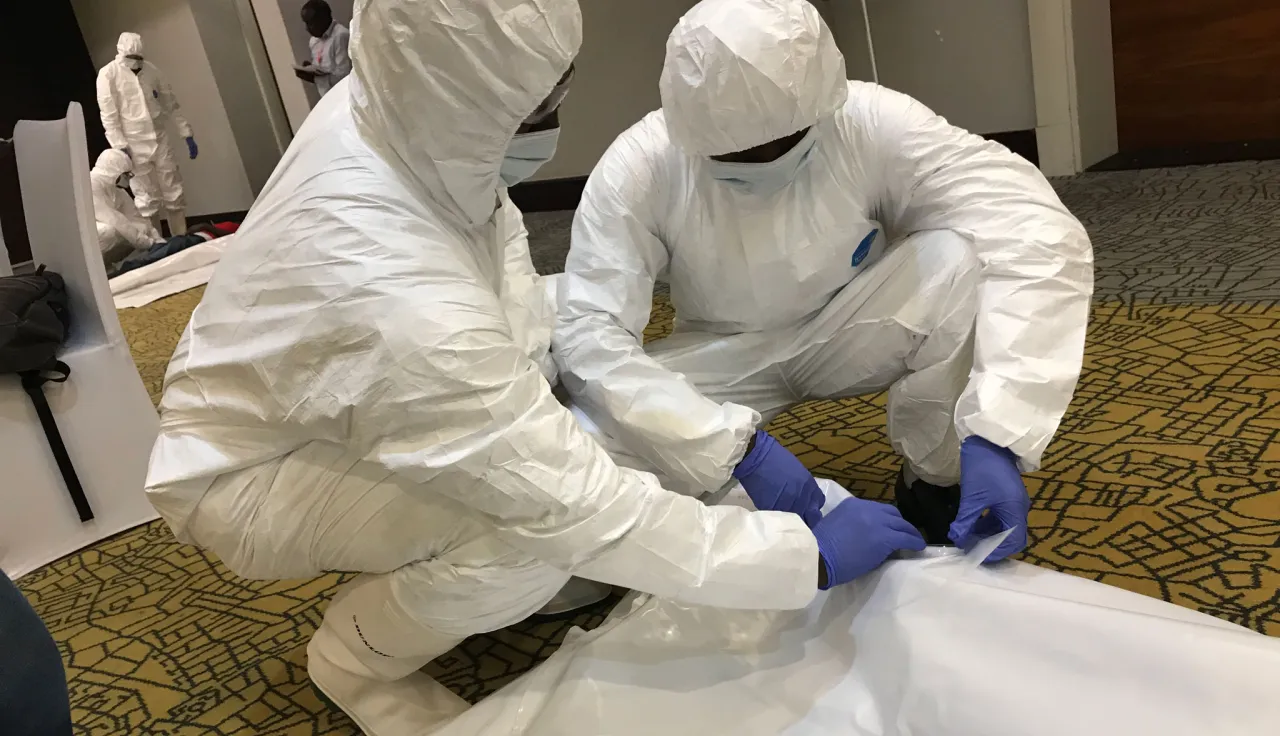
21 Rwandan medical and forensic personnel from the Rwanda Forensic Laboratory and Kigali University Teaching Hospital (CHUK) with responsibilities in the management of the dead have completed a three-day Emergency Preparedness Training for First Responders.
The course is managed by the International Committee of the Red Cross's (ICRC) forensic experts and ran from 5 to 7 March 2019 in Kigali. It introduced participants to standard and practical methods of managing the dead in emergencies involving mass fatality situations.
The core principles for decedent recovery were examined, with sensitization to the identification process.
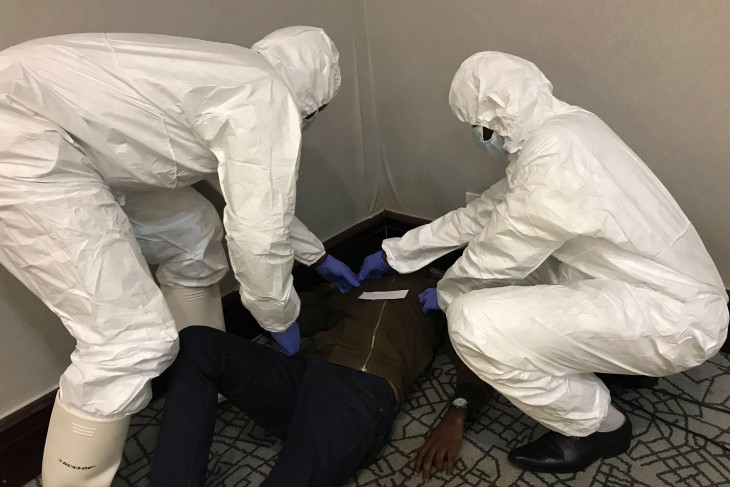
During the training, a medical doctor examines a body to confirm whether the person is dead or in need of medical assistance. CC BY-NC-ND / ICRC
Participants appreciated the skills learned, saying that it will help them improve the way they have been delivering management of the dead services.
Chief Inspector of Police (CIP) Japhet Ashimirwe from Rwanda Forensic Laboratory, Documents and fingerprint unit, who was tasked by his institution to create a new unit on Forensic Anthropology, found the course very enriching.
"The course is useful, and the course support materials are convenient. I personally benefited a lot from it. I am sure it is definitely going to have a positive impact on the way we used to do things," said CIP Ashimirwe.
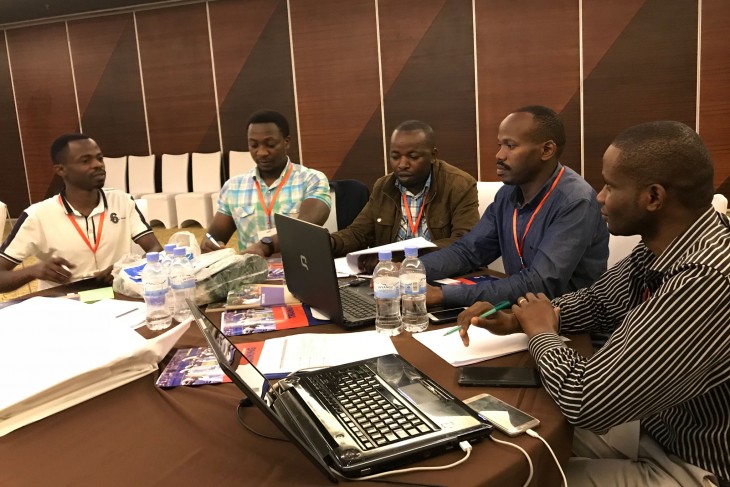
Before the team can visit a scene that has human remains, they must prepare and assign tasks. CC BY-NC-ND / ICRC
Mixing theory and practical simulation exercises, participants were provided with a solid framework of understanding of the key challenges that commonly impact on communications and coordination during the management of emergencies involving large numbers of fatalities.
Proper documentation of relevant information from victims to facilitate their identification was among the key focus points. In this regard, participants were taught forensic collection procedures and respectful handling of the dead, including consideration of the needs for bereaved families.
Though CHUK has been delivering post-mortem services, they were facing difficulties, mainly a lack of enough, professional skills. Dr Gervais Ntakirutimana, head of the pathology department, is now confident that they are going to deliver improved services thanks to the skills and knowledge gained.
"We have been delivering these services (post-mortem) in a traditional way. It was very helpful to attend this training with my team. We acquired more skills and knowledge, we did practical simulation exercises and we have got good course material. I am certain that the service we are going to deliver will be much more improved to a professional standard level," said Dr Ntakirutimana.
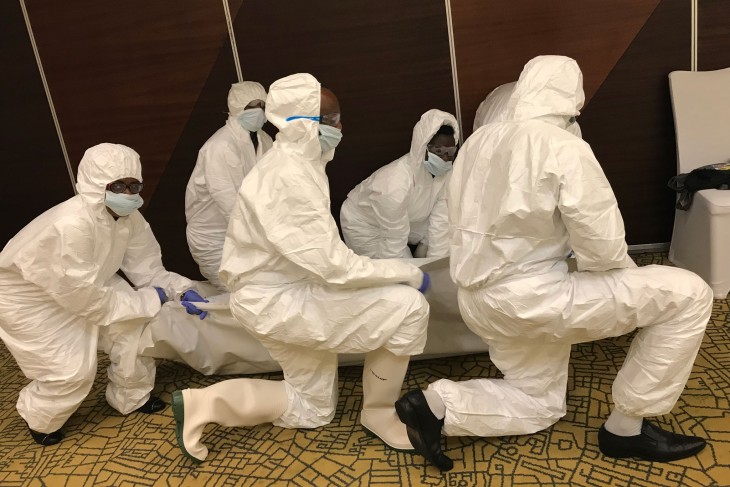
Participants prepare to lift a body bag containing human remains to be taken to a temporary mortuary. CC BY-NC-ND / ICRC
CIP Ashimirwe has been dealing with cases involving a few bodies. After this course, he feels ready to deal with a larger number of victims in case mass fatalities happen in the country. He recommended the training to be extended to as many medical professionals as possible from across the country for them to get ready for mass fatalities that may occur in the future.
"Given the importance of this training, all medical staff involved in the management of the dead from all hospitals across the country should benefit from it," said CIP Ashimwe. He added that it should also be extended to the Rwanda National Police personnel as they are among the first responders to incident scenes.

A group photo of participants holding their certificates. CC BY-NC-ND / ICRC
This training course is part of the ICRC's forensic activities launched in 2003 and is being implemented in more than 70 countries around the world. The ICRC has supported local capacity building with regard to the management of the dead and the provision of information to bereaved families. It provides advice, support and training to local authorities and forensic experts and practitioners in searching for, recovery, analyzing, identifying and management of large numbers of unidentified remains.
In some countries, the ICRC'S forensic services are adapted to needs and are part of an integrated approach to humanitarian action that includes such matters as protection activities, legal guidance, psychological support, health services, and economic assistance, access to water and suitable habitation and reducing the humanitarian impact of weapon contamination.

